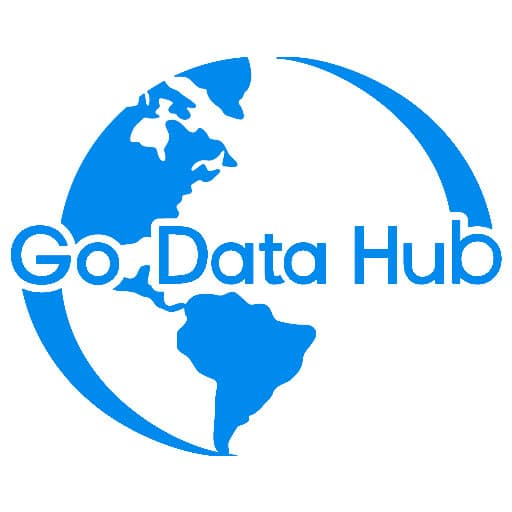Custom CRMs for Service Industries – Why You Should Use One
Why Service Industries Need a Custom CRM
Customer Relationship Management (CRM) isn’t just a database – it’s the heart of engaging with clients effectively. By streamlining communication, sales, and customer service, CRM systems drive business growth and sustain relationships.
But here’s the deal: service industries have a special set of challenges. They juggle appointments, manage contracts, and need real-time access to client history. Out-of-the-box CRMs can’t always cut it. That’s why customization is key – to line up with the unique pulse of service-based workflows.
- Healthcare: How about a CRM that navigates patient appointments and records securely?
- Legal Services: What if you could track case details and client communications in one place?
- IT and Tech Support: Imagine syncing up service tickets with customer profiles.
Precise CRM tailoring helps these sectors and more to operate smoother than a fresh jar of peanut butter. It’s about making sure that every dial, button, and feature gels with what service pros actually need to excel.
Table of contents:
- Why Service Industries Need a Custom CRM
- Custom CRMs Can Elevate Customer Service
- Who Should Consider Implementing a Custom CRM Solution?
- What Features Should Be Included in a Service Industry CRM?
- Best Time to Upgrade to a Custom CRM
- Where Can Businesses Find the Right Expertise to Build a Custom CRM?
- How Should Companies Prepare for the Adoption of a Custom CRM?
- Ongoing Evaluation and Adaptation is Key to CRM Success
Custom CRMs Can Elevate Customer Service
When it comes to service industries, Custom CRM is not just a tool; it’s a game-changer. The right features can take customer interactions from banal to exceptional, elevating the entire customer service experience. Instant access to client histories, personalized communication templates, and automated follow-ups are just the tip of the iceberg. Tailoring these features to suit your unique service can lead to a seamless service delivery that feels both personal and professional.
Let’s talk examples. In one case study, a bespoke CRM system was implemented in a home services company. The results? A dramatic 30% increase in customer satisfaction. With a new ability to quickly access service histories and preferences, technicians were better prepared for each visit, leading to a more personalized service. Moreover, customers enjoyed more accurate appointment tracking and responsive support which translated into impressive loyalty rates.
To really know if your customer service is hitting the mark, you have to measure it – and that’s where custom CRMs come into their own. Modern CRM systems come equipped with tools to capture customer feedback in real-time, and analytic features that slice and dice this data to reveal trends and opportunities. By leveraging this information, service companies can make data-driven decisions to further refine their customer service approach, ensuring that they not only meet but exceed customer expectations.
So, do you really need custom CRM software development? Let’s take a look at situations where custom CRM development for your business makes sense.
Who Should Consider Implementing a Custom CRM Solution?
Think your service business is like a snowflake? Unique, with special needs? Then a custom CRM might be your match. Standard solutions can feel like a square peg for a round hole in the service industry, where every client interaction counts.
- Unique Business, Unique Needs: If your business revolves around high-touch customer services or you offer tailor-made solutions, chances are you need a CRM that can dance to your tune, not the other way round.
- Going Beyond Basics: Off-the-shelf CRMs are great to start with, but if you’re juggling complex scheduling, job tracking, or need a 360-degree customer view, you’ll want to upgrade to a custom fit. Think of it as the leap from ready-to-wear to couture.
- Sizing it Right: Size does matter when it comes to your business and its CRM. Small but growing? A scalable, custom CRM can grow with you. Handling complexity with ease, custom solutions adapt to your increasing roster of services and clients.
- Client Conversations Count: If your client interactions are numerous and nuanced, a custom CRM not just stores names and numbers, it stores relationships. It remembers preferences, quirks, and predicts needs. That’s the kind of partnership where both client and company win big.
In short, when the off-the-rack solutions can’t keep up with your business’s pace or depth, it’s time to tailor your own CRM suit. Remember, this isn’t about excess—it’s about excellence.
What Features Should Be Included in a Service Industry CRM?
Service-based businesses require certain essential components in a CRM. Think of it as the core of your customer service system. Features like appointment scheduling streamline bookings and ensure you don’t double-book or miss appointments. Then there’s job tracking, crucial for keeping tabs on ongoing work and resources – it’s all about getting the job done efficiently and accurately monitored.
Let’s add some spice! Incorporating advanced functionalities takes your CRM beyond the basics. Imagine the power of AI-based suggestions; it’s like having a mini-assistant predicting your client’s next move. And don’t forget the clout gained from integration with other business tools – imagine seamless synergy with your accounting software or email marketing service. Together, they create a snapshot of your business operations that’s both broad and finessed.
Tailoring a CRM to fit the mold includes customization options to address the peculiarities of different service sectors. A healthcare provider digs patient record security and appointment reminders, a finance firm values investment tracking, and hospitality operators need guest preference management. Customization is key, whether it’s HIPAA compliance for the clinic next door or managing the stock portfolio of a high-flier.
Best Time to Upgrade to a Custom CRM
Are you feeling boxed in by your current CRM system? It’s a common problem for booming service businesses. If your current platform is glitchy, or if you’re drowning in plugins just to get the basics done, it might be time for an upgrade. Another red flag is if your team groans every time they log in – that’s your cue. Unnecessary complexity and inefficiency are clear signs that your CRM no longer fits like a glove.
Timing isn’t just about punchlines – it’s crucial for CRM integration too. Jump too soon, and you could be saddling your business with features you don’t need. Wait too long, and you could miss out on growth opportunities or frustrate your team beyond repair. An optimal upgrade period doesn’t interrupt your busiest seasons and aligns with your tech team’s capacity to manage the transition effectively.
- Not sure if your CRM fits anymore? Look for constant workarounds and team frustration.
- Perfect timing avoids busy seasons and fits with your tech team’s calendar.
The leap from standard to custom CRM should be a high-five moment, not a facepalm. Start with a clear game plan for data migration to avoid losing precious customer info. Train your team well ahead of the rollout to squash resistance to change. And please, keep communication channels wide open for feedback during the transition. Think of it like a software symphony – everyone’s in tune, and the results are music to your business’s ears.
- With a clear plan, you ensure a data migration without hiccups.
- Training and open communication turn your team into CRM cheerleaders.
In conclusion, the best time to upgrade to a custom CRM is when your current system feels like a square peg in a round hole. Aim for a sweet spot when your team is ready for a change but not swamped with work. And make the transition smoother than a well-oiled machine with the right prep work. Ready for the upgrade? Your business will thank you.
Where Can Businesses Find the Right Expertise to Build a Custom CRM?
Finding the ideal CRM developer or vendor is like matching a bespoke suit – it needs to fit your service industry perfectly. Initiate your quest by pinpointing CRM specialists with a portfolio in service-oriented solutions. It’s paramount to seek teams with a blend of technical prowess and real-world service industry exposure.
The easiest way to get it done is to hire an expert who focuses on custom CRMs like GoDataHub. They’ll be able to guide you, deliver and maintain a solution that fits your business like a glove.
Post-deployment, you’ll inevitably lean on vendor support like a lifeline. Scrutinize their support policies and verify that training is part of the package, ensuring a smooth transition to the new system. Scalability is another non-negotiable feature; your CRM should be a growth partner, capable of expanding its capabilities seamlessly as your business flourishes. Intuitive features that can grow with your operations are a must.
- Confirm comprehensive support and included training from the vendor.
- Ensure the CRM is scalable to adapt to your business’s growth.
How Should Companies Prepare for the Adoption of a Custom CRM?
Embarking on the journey of adopting a custom Customer Relationship Management (CRM) system? Pump the brakes and gear up with these critical prep steps. Organizational readiness doesn’t just happen; it’s a deliberate process. Get your team CRM-savvy with focused staff training. The goal: a squad confident in wielding the new system with finesse. Training bridges the know-how gap, ensuring a smooth transition from what was to what will be.
Let’s talk data—the oil in your CRM engine. Migrating data is delicate business. Preserve data integrity like it’s your digital lifeline, because it is. Scrub dirty data clean before it reaches the new home. Prevent data jumbles during transit with a meticulous checklist, keeping every byte in line and avoiding a high-stakes game of digital Jenga.
Lastly, launch in waves with a phased roll-out plan. Sudden shifts can shake up more than just routines; they risk business stability. A phased approach allows for testing, iteration, and adjustment, without pulling the rug out from day-to-day operations. Think of each phase as a controlled experiment—a chance to learn, tweak, and perfect. Minimize disruption, maximize innovation, and watch your business thrive with its custom-tailored CRM shield.

Ongoing Evaluation and Adaptation is Key to CRM Success
Efficiency isn’t static; it’s dynamic. Top-performing service industries know this. They see their CRM not as a one-and-done deal, but as a living system subject to ongoing evaluation. You can’t guess user satisfaction – you measure it. That means setting up mechanisms for continuous assessment of CRM effectiveness and gathering user feedback. This feedback loop is the beating heart of CRM vitality, pointing out pain points, celebrating wins, and highlighting opportunities for better customer engagement.
But what happens when your business scales or when market conditions shift? That’s where the art of CRM scalability and adaptability comes into play. Like a good suit, your CRM should be tailored to fit your business’s morphing silhouette. With the right processes, CRM updates are not just responses to growth spurts or market ripples – they’re strategic moves that keep you ahead of the competition. Think of your CRM as playdough; shape it to fit the ever-evolving landscape of your business needs.
Last but not least, data reigns supreme. Delve into the world of analytics and reporting to refine your CRM strategies. It’s not about drowning in data; it’s about surfacing with insights that inform decisions. Are your customers happy? Is your team effective? Where do sales funnel bottlenecks lie? These questions are the compass that guides CRM optimization, ensuring that user experiences aren’t just good—they’re remarkable. By closely monitoring these insights, service industries can turn a good CRM system into a fantastic one, fostering an environment of continuous improvement and customer delight.

